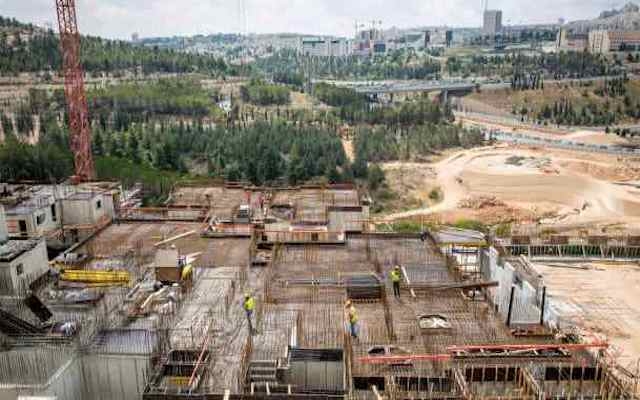Amidst rising tensions surrounding the budget freezes for the Arab sector authorities, the Israeli government recently gave its approval for the continuation of the five-year plan specifically crafted for the residents of East Jerusalem. The proposed budget is an impressive 3.2 billion NIS, slated to be allocated until 2028.
One of the most significant and somewhat controversial components of this five-year plan is its focus on educational reform. The plan aims to increase both the number and percentage of students engaged in the Israeli curriculum, as well as those enrolled in preparatory programs for the Israeli academy, with the overarching goal of ensuring their seamless integration. Besides the emphasis on education, the plan includes comprehensive development projects: enhancing road infrastructure and public transportation, approving at least 2,000 new housing units annually, constructing multi-functional public spaces, expanding sports facilities and school libraries, and initiating measures to combat crime and violence.
Cabinet approves NIS 3.2 billion development plan for East Jerusalem. Five-year plan gets green light after being delayed by Finance Minister Smotrich’s objection to funding of college preparatory program for Arab students [TOI] #Jerusalem #Israel pic.twitter.com/FbqEmphguE
— Eli Dror (@edrormba) August 20, 2023
Prime Minister Netanyahu, during a cabinet discussion, emphasized the government's unwavering commitment to Jerusalem and its inhabitants. "Today's pivotal decision in favor of East Jerusalem residents, which amounts to 3 billion shekels, surpasses any prior budget designated for civil services in this part of the city," he noted with pride.
Meir Proosh, the Minister of Jerusalem and Israel's Tradition, remarked that the decisions transcend political alignments. "Israel's sovereignty over East Jerusalem necessitates the provision of these services to its residents. The introduction of this unique developmental plan for East Jerusalem underscores our collective responsibility towards every individual, all of whom are reflections of the Divine," he said.
The Cabinet, at its weekly meeting today, approved the NIS 3.2 Billion 2024-2028 five-year socio-economic gap reduction and economic development plan for eastern Jerusalem.
— Prime Minister of Israel (@IsraeliPM) August 20, 2023
Further information >>https://t.co/BYZmIecNxG pic.twitter.com/rYiMDgv6X5
Addressing the impressive financial commitment, Finance Minister Smotrich revealed that this year marked the first instance where the annual grant crossed the threshold of one billion shekels. He added optimistically, "The trend will continue next year. Our government is heavily investing in development, transportation, and infrastructure. While residents voice concerns about traffic congestion, their mayor, commendably, remains apolitical and prioritizes the city's best interests."
Further elaborating, the Finance Minister urged the leaders of the Arab sector to collaborate for a brighter future. "Come forward, join forces with us to streamline the processes. The Arab sector, being at the frontline, bears the brunt of challenges, be it violence, corruption, or the race for the state's resources. The sector suffers first-hand from the repercussions of violence and misallocated funds. I encourage you to align with us, leaving behind trivial politics, to effectively serve the entirety of Israel's citizenry."


